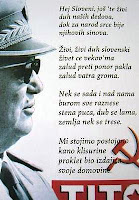Jose Abad Santos on Stamps

Jose Abad Santos is best known as a jurist. He gained national hero status during World War II. His refusal to collaborate with the Japanese with the Japanese occupational forces resulted in his incarceration, torture and death.
José Abad Santos y Basco (February 19, 1886 – May 2, 1942) was the fifth Chief Justice of the Supreme Court of the Philippines and served as Acting President of the Philippines during World War II. He was executed by Japanese forces during the Japanese occupation of the Philippines, He is the grandfather of Senator Jamby Madrigal. Abad Santos was born in City of San Fernando, Pampanga to Vicente Abad Santos and Toribia Basco. His brother, Pedro, would eventually emerge as a leading socialist leader during the Commonwealth era. In 1904, he was sent to the United States as a government pensionado. He finished a pre-law course at the Santa Clara College in Santa Clara, California; his Bachelor of Laws at Northwestern University in Evanston, Illinois; and his Masters of Laws at George Washington University in 1909. Admitted to the Philippine Bar in 1911, he served as Assistant Attorney at the Bureau of Justice from 1913 to 1917.
In 1919, Abad Santos would become instrumental in laying the legal groundwork as well as drafting the by-laws and constitution of the Philippine Women's University, the country's and Asia's first private non-sectarian institution for higher learning for women. A staunch Methodist, Abad Santos was a member of the Central United Methodist Church on Kalaw Street in Manila then known as the Central Methodist Episcopal Church.
He was later appointed the first Filipino corporate lawyer of the Philippine National Bank, Manila Railroad Company and other government corporations. He returned to the Department of Justice where he became Attorney-General, Undersecretary of Justice then Secretary of Justice from 1921 to 1923. In July 1923, he resigned as Secretary of Justice together with other department secretaries as a result of the controversy between Governor-General Leonard Wood and Filipino leaders.
Abad Santos then served as Chief Counsel of the President of the Philippine Senate and the Speaker of the House of Representatives. In 1926 he went to the United States as head of the Philippine Educational Mission. He was again appointed Secretary of Justice in 1928 and re-appointed on July 1, 1931. In 1932, he became an Associate Justice of the Supreme Court.
He became its Chief Justice on December 24, 1941. As part of the emergency reorganization of the Commonwealth government, Abad Santos, in his capacity as Chief Justice, was given the responsibilities previously handled by the Secretary of Justice (the position of Secretary of Justice was abolished for the duration of the war). Abad Santos accompanied the Commonwealth government to Corregidor, where on December 30, 1941, he administered the oath of office to President Quezon and Vice-President Osmeña for the second term they'd been elected to in November of that year. He also undertook, with Manuel Roxas, the supervision of the destruction of Commonwealth government currency to prevent its falling into enemy hands.
When President Manuel L. Quezon left for the United States via Australia, Chief Justice Abad Santos was given the choice to leave with him. But the latter preferred to remain in the Philippines and carry on his work and stay with his family. President Quezon appointed him Acting President with full authority to act in the name of, and on behalf, of the President of the Philippines in areas unoccupied by the Japanese. On April 11, 1942, he and his son José, Jr. were captured by the Japanese while traveling by automobile in Carcar, Cebu. He identified himself as the chief justice of the Supreme Court of the Philippines. Abad Santos and his son were then taken to a concentration camp.
When asked to cooperate with the Japanese, he refused to do so. Although he had nothing to do with military operations, they imputed to him the destruction of the bridges and other public works in Cebu.
The Japanese High Command took him and his son to Parang, Cotabato (now in Maguindanao) in April 1942. The next day they were brought to Malabang, Lanao, and after three days confinement at the constabulary barracks, Chief Justice Abad Santos was called to Japanese headquarters. Before he was shot to death, he was able to talk to his son José, Jr. His last parting words to his son were "Do not cry, Pepito, show to these people that you are brave. It is an honor to die for one's country. Not everybody has that chance." He was executed at 2:00 p.m., on May 2, 1942.
The date is often reported as May 7, but as former Supreme Court Justice Ramón C. Aquino, Abad Santos' biographer put it, "At first it was thought that Abad Santos had been killed on May 7, 1942. This was the date given by Pepito himself during his testimony at the trials of Generals Hayashi and Kawaguchi. But on the basis of Fukui's testimony supported by notations in his diary, the date of Abad Santos' execution was definitely ascertained to be at two o'clock on the afternoon of May 2, 1942."
The stamp above was issued on May 2,1960.






